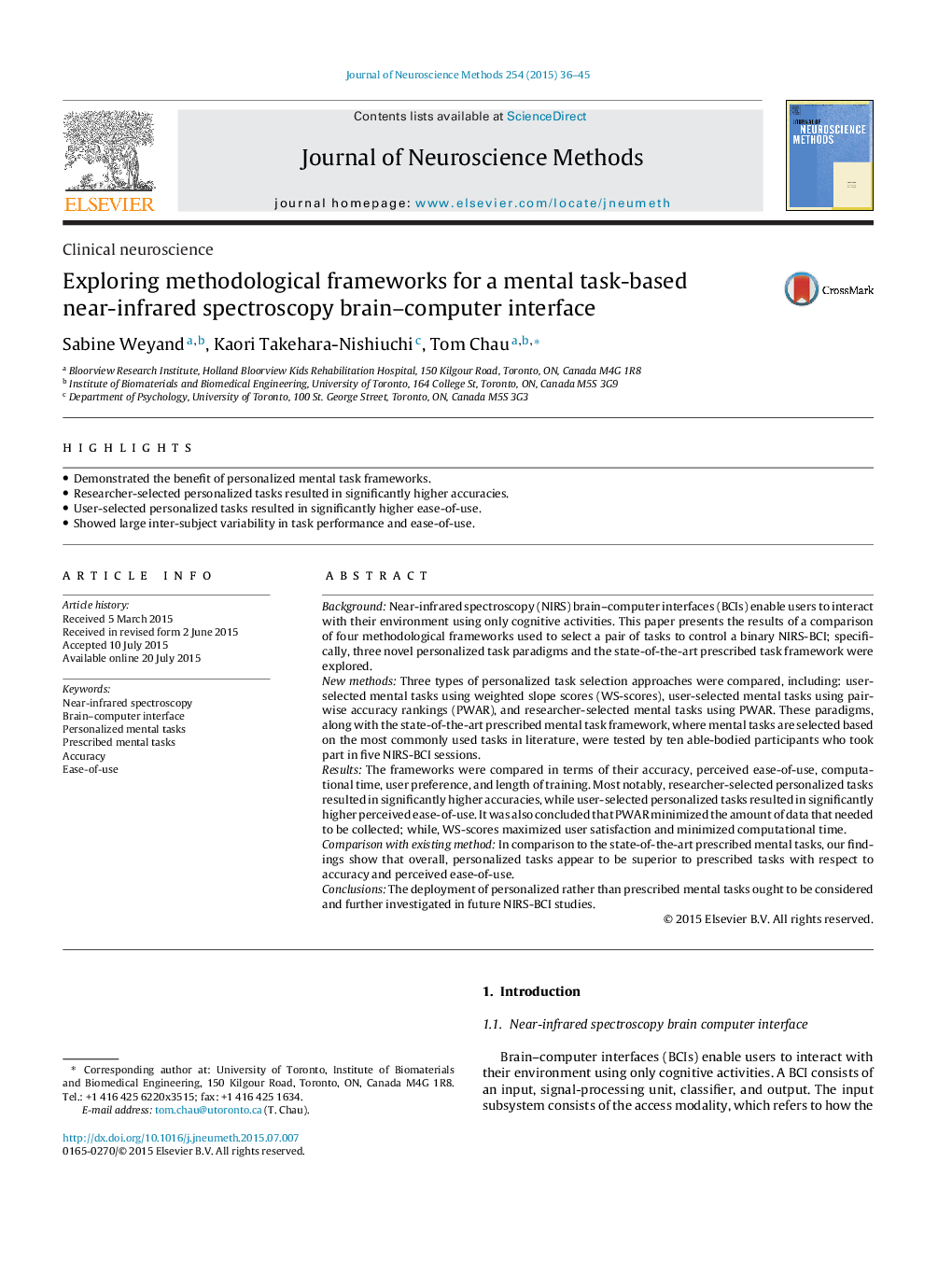| Article ID | Journal | Published Year | Pages | File Type |
|---|---|---|---|---|
| 6267924 | Journal of Neuroscience Methods | 2015 | 10 Pages |
â¢Demonstrated the benefit of personalized mental task frameworks.â¢Researcher-selected personalized tasks resulted in significantly higher accuracies.â¢User-selected personalized tasks resulted in significantly higher ease-of-use.â¢Showed large inter-subject variability in task performance and ease-of-use.
BackgroundNear-infrared spectroscopy (NIRS) brain-computer interfaces (BCIs) enable users to interact with their environment using only cognitive activities. This paper presents the results of a comparison of four methodological frameworks used to select a pair of tasks to control a binary NIRS-BCI; specifically, three novel personalized task paradigms and the state-of-the-art prescribed task framework were explored.New methodsThree types of personalized task selection approaches were compared, including: user-selected mental tasks using weighted slope scores (WS-scores), user-selected mental tasks using pair-wise accuracy rankings (PWAR), and researcher-selected mental tasks using PWAR. These paradigms, along with the state-of-the-art prescribed mental task framework, where mental tasks are selected based on the most commonly used tasks in literature, were tested by ten able-bodied participants who took part in five NIRS-BCI sessions.ResultsThe frameworks were compared in terms of their accuracy, perceived ease-of-use, computational time, user preference, and length of training. Most notably, researcher-selected personalized tasks resulted in significantly higher accuracies, while user-selected personalized tasks resulted in significantly higher perceived ease-of-use. It was also concluded that PWAR minimized the amount of data that needed to be collected; while, WS-scores maximized user satisfaction and minimized computational time.Comparison with existing methodIn comparison to the state-of-the-art prescribed mental tasks, our findings show that overall, personalized tasks appear to be superior to prescribed tasks with respect to accuracy and perceived ease-of-use.ConclusionsThe deployment of personalized rather than prescribed mental tasks ought to be considered and further investigated in future NIRS-BCI studies.
